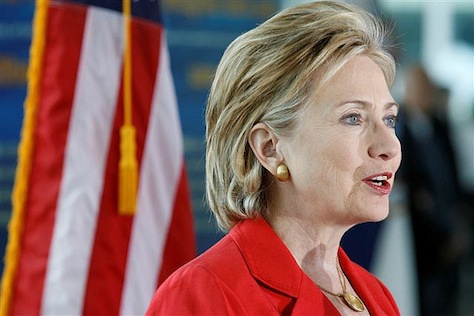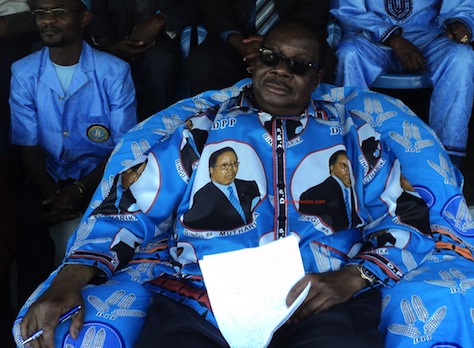The big headline today is that former US secretary of state Hillary Clinton’s upcoming memoirs, which will be released June 10, will state unequivocally that she believes she was ‘wrong’ about her vote authorizing force in Iraq in 2003.![]()
![]()
But the potentially bigger news is that Clinton’s memoirs also state that she unequivocally opposes the US embargo on Cuba — a position that few politicians in the past half-century have dared, lest they draw the wrath of anti-Castro voters in south Florida, a key constituency in a state with 29 electoral votes, more than one-tenth of the electoral votes that Clinton would need to become the 45th president of the United States.
* * * * *
RELATED: A public interest theory of the continued
US embargo on Cuba
* * * * *
Here’s what The Associated Press reports:
In excerpts of the book “Hard Choices” obtained by The Associated Press ahead of its release next week, Clinton writes that the embargo has given communist leaders Fidel and Raul Castro an excuse not to enact democratic reforms. And she says opposition from some in Congress to normalizing relations — “to keep Cuba in a deep freeze” — has hurt both the United States and the Cuban people. She says the 2009 arrest by Cuba of USAID contractor Alan Gross and Havana’s refusal to release him on humanitarian grounds is a “tragedy” for improving ties.
“Since 1960, the United States had maintained an embargo against the island in hopes of squeezing Castro from power, but it only succeeded in giving him a foil to blame for Cuba’s economic woes,” she writes. She says her husband, former President Bill Clinton, tried to improve relations with Cuba in the 1990s, but the Castro government did not respond to the easing in some sanctions. Nonetheless, Obama was determined to continue the effort, she writes. She says that late in her term in office she urged Obama to reconsider the U.S. embargo. “It wasn’t achieving its goals,” she writes, “and it was holding back our broader agenda across Latin America. … I thought we should shift the onus onto the Castros to explain why they remained undemocratic and abusive.”
What Clinton writes is an understatement — regardless of your view on the Castros, it’s impossible to deny that the US embargo has given the Castros the kind of anti-imperial patina that have transformed them from run-of-the-mill socialist authoritarians into champions of Latin American sovereignty.
For the record, I have argued there’s room both to praise the Castros for their role leading the 1961 Cuban revolution and to denounce them for an ensuing half-century of economic negligence and political repression. It’s also understandable why, for two or three generations of Latin Americans who have felt the economic or military sting of US intervention, dating back to the 19th century, the Castros have achieved such an iconic status for their willingness to stand up to the United States. Continue reading Did Hillary Clinton just lose Florida in the November 2016 election?


